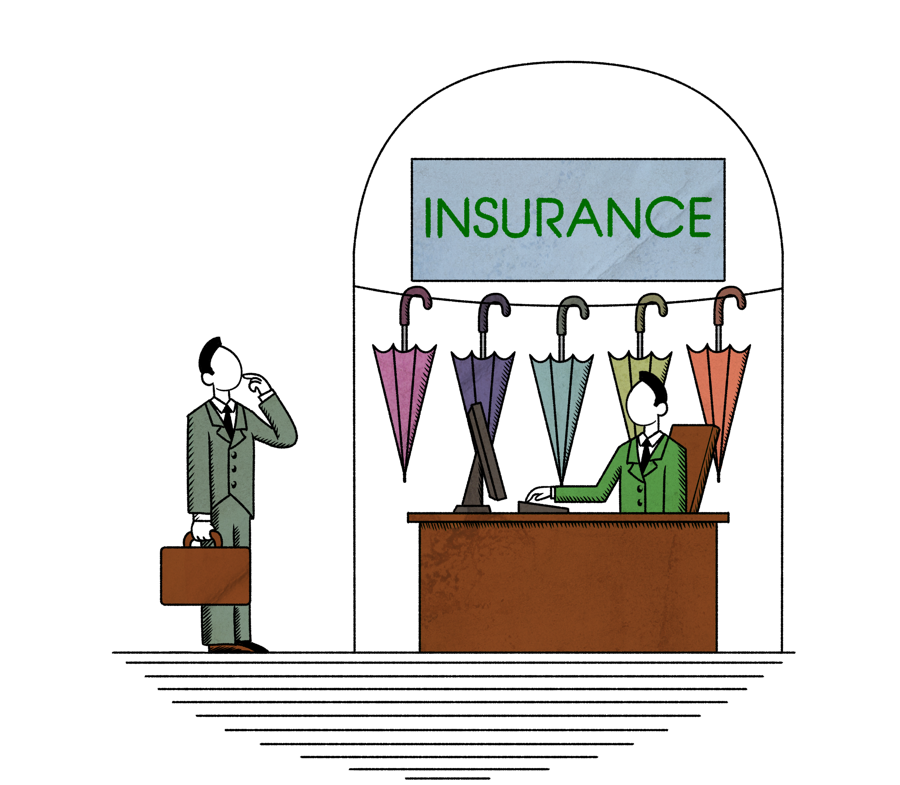What type of insurance do franchisors need?
As a franchisor, you wear many hats: from sales and systems design to advertising and marketing. You manage brand identity, oversee talent acquisition, ensure legal compliance, and provide franchisee training and support. You’re also responsible for supply chain management, driving innovation, enhancing customer experience, managing technology, and steering strategic planning and vision—and that’s just the beginning.
Training and Support
Franchisors frequently conduct training sessions at franchisee locations, with teams often traveling from site to site. But what about the risks involved? What if someone is injured during one of these training sessions? Or what if your activities inadvertently cause property damage?

It’s crucial to have a General Liability (GL) policy that accurately classifies you as a franchisor to ensure these risks are covered. A properly structured GL policy would protect your business in the event of a bodily injury or property damage claim arising from your training activities.
Additionally, consider the risks your employees face while traveling for training sessions or attending trade shows. Workers’ Compensation insurance is essential to cover any injuries or accidents that may occur during these work-related travels, ensuring your team is protected no matter where their work takes them.
What if your employees need to run an errand in their personal vehicle or rent a car while traveling? Most franchisors don’t have a fleet of vehicles that would justify purchasing a commercial auto policy. However, the incidental exposure from business errands in personal vehicles and car rentals can present significant risks.
To mitigate these risks, it’s essential to have Hired Auto coverage to protect against bodily injury claims in case of an accident while renting a vehicle. Additionally, Non-Owned Auto coverage is crucial for those incidental business errands carried out in personal vehicles. In this scenario, the employee’s personal auto insurance policy would be the primary coverage, with Non-Owned Auto coverage stepping in to protect the business if needed.
Franchisor Administration Exposures
One of your main exposures as a franchising entity involves Errors & Omissions (E&O), which can include a variety of issues such as inadequate training and support, misrepresentation in the Franchise Disclosure Document (FDD), failure to enforce brand standards, poor site selection, territory disputes, inadequate advertising or marketing support, inaccurate financial projections, and more. There’s a common saying in franchising: “It’s not if, it’s when you’re sued.” So, what are you doing to finance these risks appropriately?
In addition to your E&O exposure, you also have Directors & Officers (D&O) exposures that may lead to financial ruin. Some of the common issues we see are breach of fiduciary duty, mismanagement of company assets, shareholder lawsuits, failure to comply with regulatory requirements, misrepresentation to investors, conflict of interest, fraudulent misrepresentation, and unfair franchise practices.
Whether you’re an emerging franchise concept or an established brand, and whether you have investors or a private equity group, the first step is to review any contractual obligations you need to meet. These obligations typically come from investors or a PE firm.
If you don’t have any specific requirements and are an emerging franchise concept, starting with a $1,000,000 occurrence and aggregate limit is pretty standard. When considering whether to increase your limits, it comes down to your risk tolerance and factoring in your growth trajectory.
Vicarious Liability Insurance
A franchisor provided its franchisees with an operations manual detailing procedures for handling customer interactions. One day, a franchisee followed the manual’s instructions, but unfortunately, a customer was injured during a service. The customer sued both the franchisee and the franchisor, claiming the injury resulted from the procedures outlined in the manual. The franchisor’s vicarious liability insurance was triggered because the claim was based on the franchisee’s actions while following the franchisor’s guidelines.
While Vicarious Liability addresses the risks of being held responsible for the actions of your franchisees, it’s equally important to consider the modern threats posed by technology and data management, which is where Cyber Liability Insurance comes into play.
Cyber Liability Insurance
A common misconception among franchisors is believing they have no cyber liability exposure because they use third-party software like a franchise management system, project management tool, or CRM. However, in most contracts, the software provider waives their liability and requires a hold harmless agreement. This means if something goes wrong with the software, you are liable—not the third-party provider. And that’s just the data aspect.
Consider the other cybersecurity exposures you face as a franchisor. For example, what if you click on a malicious link that leads you to approve a $25,000 invoice to what appears to be one of your approved vendors? Cyber liability insurance with the right coverage clauses can protect you from common mistakes like this.
What about insurance if an employee sues me?
Employment lawsuits are increasingly common, ranging from sexual harassment and wrongful termination to discrimination and retaliation. These lawsuits can result in hundreds of thousands of dollars in defense costs alone, with even higher settlements. Be particularly cautious in more liberal-leaning states, where juries often side with employees, even in cases that seem frivolous. In addition to the questions you might ask about your E&O and D&O policies, consider discussing these important questions with your broker about your Employment Practices Liability Insurance (EPLI) policy.
Final thoughts and takeaways
Franchisors face a multitude of risks, from operational errors to legal liabilities, that require comprehensive insurance coverage.It’s essential to consider the unique exposures that come with franchising, including Errors & Omissions (E&O), Directors & Officers (D&O), Vicarious Liability, Cyber Liability, and Employment Practices Liability Insurance (EPLI). Each of these coverages plays a critical role in protecting your business from potential lawsuits and financial losses. By asking the right questions and understanding the specific needs of your franchise, you can ensure that your insurance policies provide the necessary protection at every stage of your franchising journey.
Special thanks to Wade Millward with https://www.protectmyfranchise.com/ for help with this franchise question.
